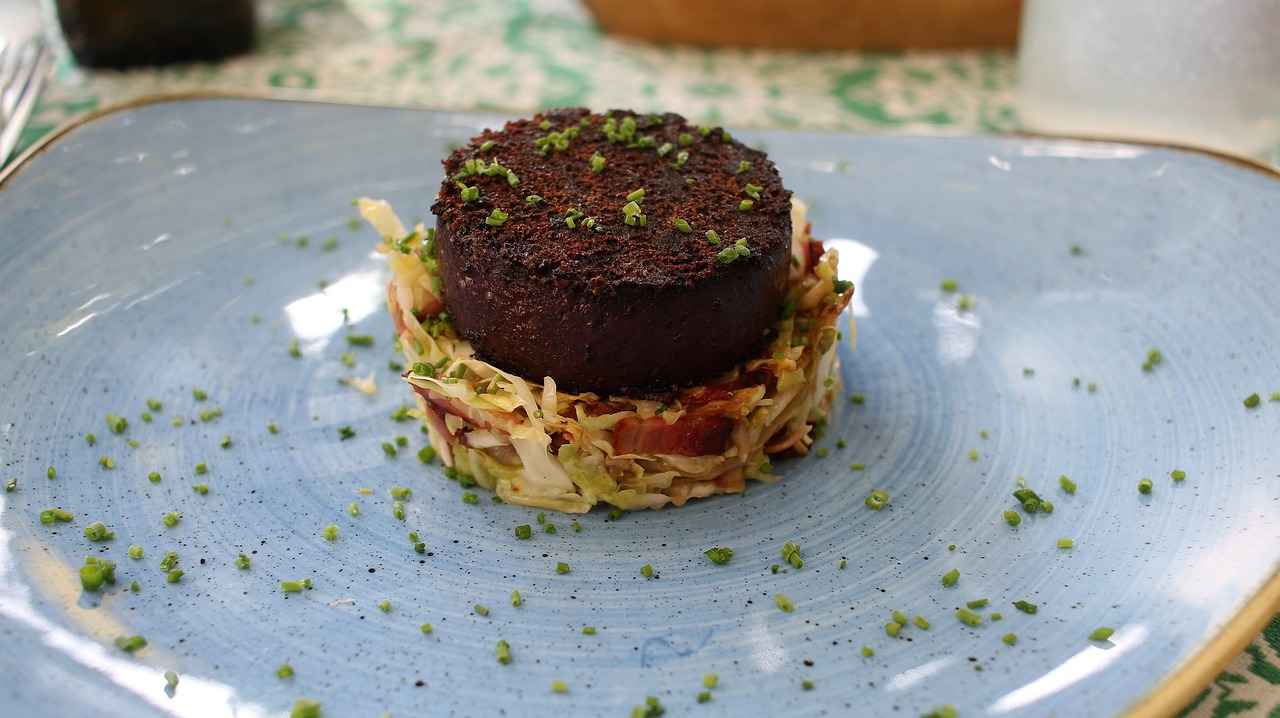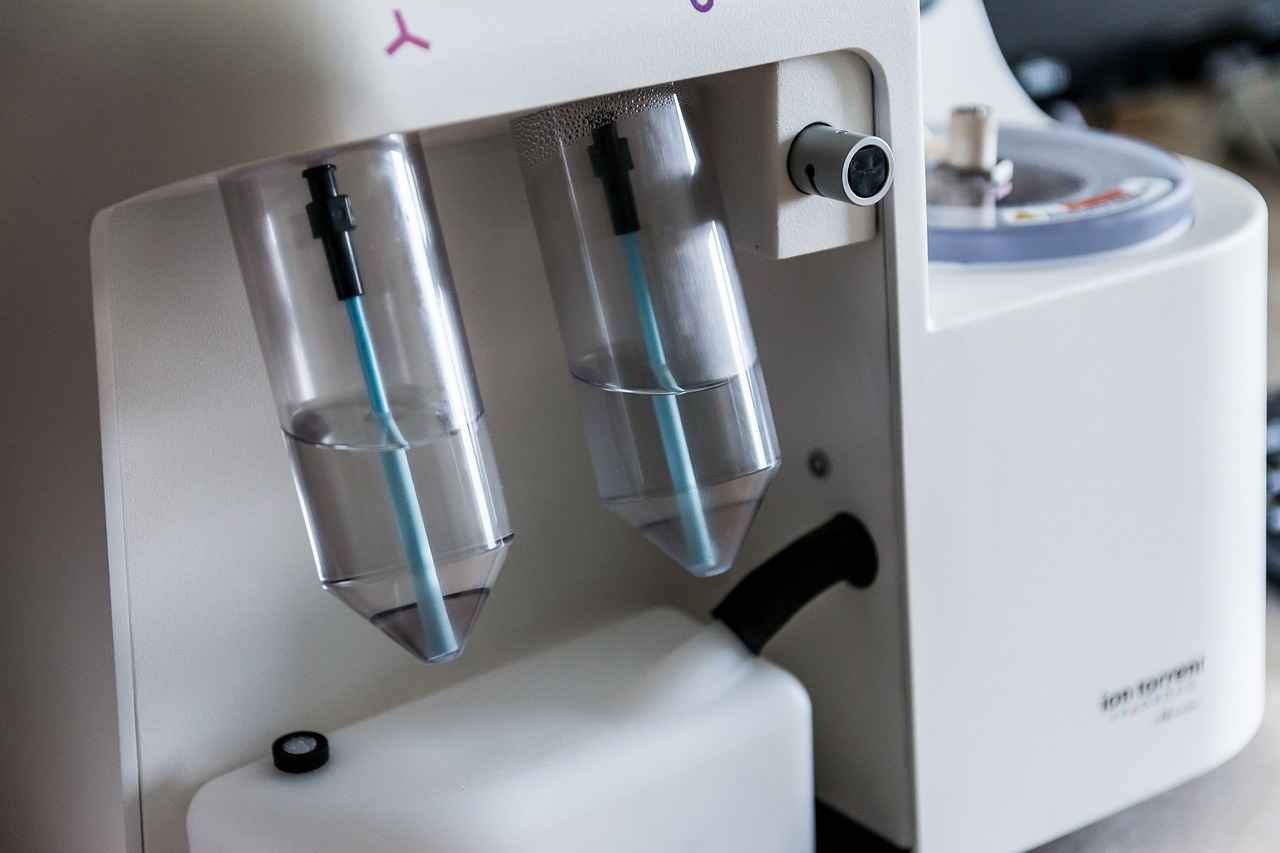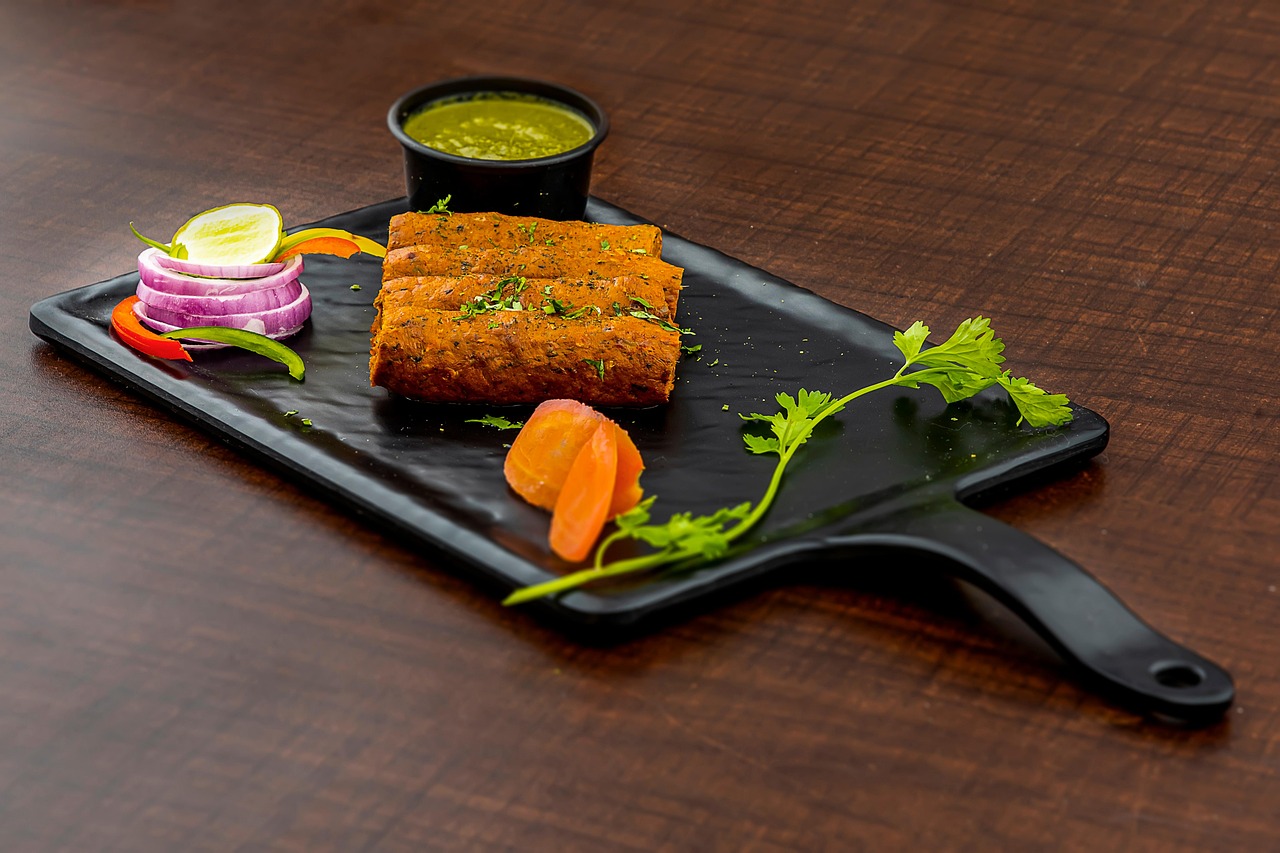This article delves into the guidelines and recommendations regarding water consumption during fasting for blood tests. Understanding these best practices is essential for preparing effectively and knowing what to expect during the testing process.
Understanding Fasting for Blood Tests
Fasting for blood tests is a common requirement that can significantly influence the accuracy of results. Fasting typically means abstaining from food and drink for a specified period before the test. Knowing why fasting is necessary helps patients prepare adequately and understand the implications for their health.
Why Is Fasting Important?
Fasting is crucial for certain blood tests as it prevents food and drink from affecting the results. Specific tests, such as glucose and lipid panels, require fasting to ensure accurate measurements. This section discusses the types of tests that typically necessitate fasting.
- Glucose Testing: Fasting glucose tests are essential for diagnosing diabetes and prediabetes. Accurate fasting is critical for reliable results.
- Lipid Panel: A lipid panel assesses cholesterol and triglyceride levels. Fasting is necessary to obtain precise readings, as recent food intake can skew the results.
Tests That Do Not Require Fasting
Not all blood tests require fasting. Some tests can be performed without fasting, providing clarity for patients who may be concerned about dietary restrictions.
Can You Drink Water While Fasting?
Water consumption during fasting for blood tests is a common question. In general, drinking water is permissible and even encouraged. Staying hydrated can facilitate blood draw and improve overall comfort during the testing process.
The Role of Water in Fasting
Hydration plays a vital role during fasting. Drinking water helps maintain blood volume and can make veins easier to locate, thereby enhancing the blood draw experience.
Effects of Water on Blood Test Results
Understanding how water intake impacts blood test results is essential. In most cases, drinking water does not affect the outcomes of fasting blood tests. However, excessive water consumption should be avoided as it may dilute certain blood components.
Tips for Fasting Before a Blood Test
- How Long Should You Fast? Typically, fasting lasts 8-12 hours, depending on the test. Knowing the recommended fasting duration helps patients plan their meals and timing effectively.
- What to Avoid While Fasting? During fasting, it’s crucial to avoid certain substances, such as alcohol, sugary drinks, and solid foods, to ensure the integrity of blood test results.
Common Myths About Fasting for Blood Tests
- Myth: You Cannot Drink Anything: Many believe fasting means complete abstinence from all liquids. This myth is clarified, emphasizing that water is generally acceptable during fasting periods.
- Myth: Fasting Isn’t Necessary: Some may question the necessity of fasting for all tests. This myth is addressed by detailing the importance of fasting for specific tests to ensure accurate diagnoses.
In summary, understanding the guidelines for water consumption during fasting for blood tests is essential for accurate results. By staying hydrated and following fasting protocols, patients can ensure a smoother testing experience.

Understanding Fasting for Blood Tests
is essential for patients to ensure accurate results and effective diagnosis. Fasting is a common requirement for various blood tests, and understanding the reasons behind it can help individuals prepare adequately. This article delves into the significance of fasting, the types of tests that necessitate it, and practical tips for a successful fasting experience.
When healthcare providers request fasting before a blood test, they aim to eliminate any variables that could skew the results. Fasting typically involves abstaining from all food and drink, except for water, for a specified period before the test. This process allows for a clearer picture of the body’s baseline levels of certain substances, leading to more accurate assessments.
Fasting is crucial for specific blood tests because it prevents recent food and drink from influencing the results. For example, the presence of food can alter blood glucose levels, leading to potential misdiagnoses. By fasting, patients provide a more stable environment for testing, which enhances the reliability of the results.
Several key blood tests require fasting, including:
- Glucose Testing: This test measures blood sugar levels and is essential for diagnosing conditions like diabetes and prediabetes.
- Lipid Panel: This test assesses cholesterol and triglyceride levels, which can be significantly affected by recent food intake.
- Basic Metabolic Panel: This panel evaluates glucose, calcium, and electrolytes, necessitating fasting for accurate readings.
While many blood tests require fasting, some do not. Tests such as complete blood counts (CBC) and thyroid function tests can be performed without any dietary restrictions. Understanding which tests require fasting can alleviate anxiety and help patients plan accordingly.
A common question among patients is whether they can drink water while fasting for a blood test. Generally, drinking water is not only allowed but also recommended. Staying hydrated can facilitate the blood draw process and improve overall comfort during the test.
Water plays a vital role in maintaining hydration levels, which can be beneficial during fasting. Adequate hydration helps in the easier collection of blood samples and can reduce the likelihood of feeling lightheaded or faint during the procedure.
Drinking water does not significantly affect the results of most blood tests. However, it’s essential to avoid any flavored or sugary drinks, as these can influence test outcomes. Always consult with your healthcare provider if you have specific concerns regarding water consumption during fasting.
Preparing for a blood test can be daunting, but following these tips can ensure a smooth fasting experience:
- How Long Should You Fast? Typically, fasting lasts between 8 to 12 hours, depending on the specific test. Knowing the required duration allows for better meal planning.
- What to Avoid While Fasting: It’s crucial to avoid food, beverages other than water, and certain medications unless directed otherwise by your healthcare provider.
There are several misconceptions surrounding fasting for blood tests. One prevalent myth is that fasting means complete abstinence from all liquids. In reality, water is generally acceptable and can aid in the process. Another myth is that fasting isn’t necessary for all tests; however, certain tests do require it to ensure accurate results.
In summary, understanding the importance of fasting for blood tests is vital for patients. By adhering to fasting guidelines and preparing adequately, individuals can contribute to more accurate diagnoses and effective healthcare outcomes.

Why Is Fasting Important?
Fasting is a critical aspect of preparing for certain blood tests, as it ensures that the results are not influenced by recent food or drink intake. This practice is essential for achieving accurate and reliable diagnostic outcomes, which can significantly impact patient care and treatment decisions. In this section, we will explore the reasons fasting is important and the types of blood tests that typically require this preparation.
Understanding the Need for Fasting
When you consume food or beverages, your body undergoes metabolic changes that can alter the composition of your blood. This is particularly relevant for tests that measure specific substances, such as glucose and cholesterol. By fasting, you minimize the variables that could skew the results, leading to a more precise assessment of your health.
Types of Blood Tests That Require Fasting
- Glucose Testing: Fasting glucose tests are vital for diagnosing conditions like diabetes and prediabetes. An accurate measurement of blood sugar levels is crucial, as it helps healthcare providers determine the best course of action for treatment.
- Lipid Panel: A lipid panel measures cholesterol and triglyceride levels in the blood. Fasting before this test is essential because recent food intake can elevate triglyceride levels, leading to misleading results.
- Liver Function Tests: Some liver function tests may also require fasting. These tests measure the levels of enzymes and other substances produced by the liver, and fasting can help provide a clearer picture of liver health.
- Iron Studies: Fasting is often recommended for iron studies to assess iron levels and overall iron metabolism. Consuming food can interfere with iron absorption and lead to inaccurate readings.
Why Fasting Matters for Accurate Diagnoses
The importance of fasting cannot be overstated. Accurate blood test results are crucial for diagnosing medical conditions, monitoring chronic diseases, and evaluating the effectiveness of treatments. When patients do not fast as instructed, it can lead to:
- Misdiagnosis: Incorrect results can cause healthcare providers to misinterpret a patient’s condition, potentially leading to inappropriate treatment plans.
- Unnecessary Follow-Up Tests: If initial test results are inconclusive due to non-fasting, patients may need to undergo additional tests, causing delays in diagnosis and treatment.
- Increased Healthcare Costs: Unnecessary testing and prolonged diagnostic processes can lead to increased healthcare costs for both patients and providers.
Preparing for a Fasting Blood Test
To ensure the most accurate results, it is essential to follow your healthcare provider’s instructions regarding fasting. Typically, fasting lasts between 8 to 12 hours, depending on the specific test. During this time, you should avoid all food and beverages except for water. Staying hydrated is important, as it can make the blood draw easier and more comfortable.
In summary, fasting is a fundamental requirement for specific blood tests, as it helps to ensure the accuracy of results that are critical for proper diagnosis and treatment. By understanding the importance of fasting and the types of tests that require it, patients can better prepare for their blood tests and contribute to their overall health management.
Types of Blood Tests That Require Fasting
Fasting is a crucial aspect of many blood tests, ensuring that the results are accurate and reliable. Understanding which blood tests require fasting can significantly aid in preparing for these important health assessments. In this section, we will delve into the various types of blood tests that necessitate fasting, as well as the reasons behind this requirement.
- Glucose Testing: This test measures the level of glucose in the blood and is essential for diagnosing conditions such as diabetes and prediabetes. Fasting for at least 8 hours before the test is critical because recent food intake can lead to elevated blood sugar levels, thus skewing the results.
- Lipid Panel: A lipid panel assesses cholesterol levels, including LDL (bad cholesterol), HDL (good cholesterol), and triglycerides. Fasting for 9-12 hours is typically required to ensure accurate readings, as food can temporarily alter lipid levels, leading to misleading interpretations of cardiovascular risk.
- Comprehensive Metabolic Panel (CMP): This panel includes tests for glucose, calcium, electrolytes, and kidney and liver function. Fasting is essential here to avoid interference from food, which could impact the assessment of metabolic and organ health.
- Basic Metabolic Panel (BMP): Similar to the CMP, this test evaluates glucose, electrolytes, and kidney function. Fasting helps to provide a clear picture of these parameters, ensuring that any abnormalities can be accurately identified.
- Iron Studies: Fasting is often required for iron tests to avoid fluctuations in iron levels caused by recent meals. This ensures that the results reflect the body’s actual iron status, which is vital for diagnosing conditions like anemia.
- Vitamin B12 and Folate Levels: These tests may require fasting to ensure that recent dietary intake does not affect the results, which is crucial for diagnosing deficiencies that can lead to serious health issues.
Understanding the necessity for fasting before these tests can help patients prepare adequately. It is essential to follow the specific fasting guidelines provided by healthcare professionals, as different tests may have varying requirements. Generally, fasting means abstaining from all food and beverages except for water during the specified fasting period.
In summary, fasting plays a vital role in ensuring the accuracy of various blood tests. By being aware of which tests require fasting and the reasons behind it, patients can take the necessary steps to prepare effectively, leading to more reliable health assessments.
Glucose Testing
is a critical procedure in the realm of healthcare, serving as a primary method for diagnosing conditions such as diabetes and prediabetes. This test specifically measures the level of glucose in the blood after a period of fasting, typically ranging from 8 to 12 hours. The importance of fasting cannot be overstated, as it ensures that the test results reflect the body’s baseline glucose levels without the influence of recent food intake.
When a patient undergoes a fasting glucose test, the blood sample is usually drawn in the morning, after an overnight fast. This timing helps to minimize variables that could skew the results, such as the consumption of carbohydrates or sugars. The test provides valuable information about how the body manages glucose, which is vital for energy production and overall metabolic health.
There are two primary types of glucose tests: the fasting plasma glucose (FPG) test and the oral glucose tolerance test (OGTT). The FPG test is straightforward; it requires only a blood sample after fasting. In contrast, the OGTT involves measuring blood glucose levels at intervals after the patient consumes a sugary drink. This test is particularly useful for diagnosing gestational diabetes and assessing insulin sensitivity.
Understanding the results of a fasting glucose test is crucial. A normal fasting glucose level typically ranges from 70 to 99 mg/dL. Levels between 100 and 125 mg/dL suggest prediabetes, while readings of 126 mg/dL or higher indicate diabetes. These thresholds are vital for guiding further testing and treatment options.
| Glucose Level (mg/dL) | Diagnosis |
|---|---|
| Less than 70 | Hypoglycemia |
| 70 – 99 | Normal |
| 100 – 125 | Prediabetes |
| 126 or higher | Diabetes |
In addition to its diagnostic capabilities, fasting glucose testing can also be used to monitor the effectiveness of treatment plans for individuals diagnosed with diabetes. Regular testing helps healthcare providers adjust medications, dietary recommendations, and lifestyle changes to better manage blood sugar levels.
While fasting glucose tests are essential for accurate diabetes diagnosis and management, it is equally important to consider factors that can influence test results. For example, medications, stress, and illness can all impact glucose levels. Therefore, patients should inform their healthcare providers of any medications or health conditions prior to testing.
In conclusion, fasting glucose testing plays a vital role in identifying and managing diabetes and prediabetes. By adhering to fasting guidelines and understanding the implications of test results, patients can take proactive steps toward better health. Regular monitoring and consultation with healthcare professionals are key to maintaining optimal glucose levels and overall well-being.
Lipid Panel
The is a crucial blood test that provides valuable insights into an individual’s cholesterol and triglyceride levels. Understanding these levels is essential for assessing cardiovascular health and overall wellness. In this section, we will delve into the significance of a lipid panel, the fasting requirements for accurate results, and what the results can indicate about your health.
A lipid panel, also known as a lipid profile, is a blood test that measures specific types of fats in your blood. The primary components assessed in a lipid panel include:
- Total Cholesterol: The overall amount of cholesterol in your blood.
- Low-Density Lipoprotein (LDL): Often referred to as “bad” cholesterol, high levels can lead to plaque buildup in arteries.
- High-Density Lipoprotein (HDL): Known as “good” cholesterol, it helps remove LDL cholesterol from the bloodstream.
- Triglycerides: A type of fat that can increase the risk of heart disease when elevated.
Fasting is a critical component when preparing for a lipid panel. Typically, patients are advised to fast for at least 8-12 hours before the test. The reason for this fasting period is straightforward: recent food intake can significantly skew the results, particularly the triglyceride levels. When you eat, your body processes the fats and sugars, which can lead to temporary spikes in these levels, making it difficult for healthcare providers to assess your baseline lipid levels accurately.
During the lipid panel test, a healthcare professional will draw a small sample of blood, usually from a vein in your arm. This process is quick and generally involves minimal discomfort. After the blood is drawn, it is sent to a laboratory for analysis. Results are typically available within a few days, and your healthcare provider will discuss the findings with you.
Understanding your lipid panel results is vital for managing your health. Here’s a brief overview of what the results may indicate:
- Desirable Total Cholesterol: Less than 200 mg/dL
- LDL Cholesterol: Less than 100 mg/dL is optimal; levels above this may increase heart disease risk.
- HDL Cholesterol: Levels of 60 mg/dL or higher are considered protective against heart disease.
- Triglycerides: A level under 150 mg/dL is normal; higher levels may indicate an increased risk of cardiovascular issues.
If you fail to fast before your lipid panel, the results may be unreliable, leading to potential misdiagnosis or unnecessary treatment. For instance, if you consume a high-fat meal shortly before the test, your triglyceride levels may appear elevated, which could prompt further testing or lifestyle recommendations that may not be necessary.
In summary, a lipid panel is an essential tool for assessing your heart health. Adhering to fasting guidelines is crucial for obtaining accurate results. Regular lipid testing, combined with a healthy lifestyle, can help you manage your cholesterol levels and reduce the risk of heart disease. Always consult with your healthcare provider for personalized advice and recommendations based on your lipid panel results.
Tests That Do Not Require Fasting
are an important consideration for patients undergoing blood tests. Many individuals may feel anxious about the dietary restrictions imposed by certain tests, leading to confusion and concern. However, it is essential to understand that not all blood tests necessitate fasting. This section aims to clarify which tests can be performed without fasting, offering reassurance to patients and facilitating better preparation for their appointments.
Fasting is often required for specific blood tests to ensure accurate results, particularly those assessing glucose and lipid levels. However, numerous other tests do not have such stringent requirements. Here, we will explore several common blood tests that can be conducted without the need for fasting.
- Complete Blood Count (CBC): This test evaluates overall health and detects a variety of disorders, including anemia and infections. A CBC can be performed at any time, as food intake does not affect its results.
- Thyroid Function Tests: These tests measure hormone levels produced by the thyroid gland. They are crucial for diagnosing conditions such as hypothyroidism or hyperthyroidism and can be conducted without fasting.
- Vitamin D Levels: Assessing vitamin D levels does not require fasting. This test is vital for evaluating bone health and overall wellness.
- Iron Studies: Tests measuring iron levels, including ferritin and total iron-binding capacity, can be performed without fasting. These tests help diagnose iron deficiency or overload.
- HIV and Hepatitis Testing: Blood tests for HIV and hepatitis can be conducted without fasting. These tests are crucial for early detection and management of viral infections.
- Coagulation Studies: Tests such as Prothrombin Time (PT) and Activated Partial Thromboplastin Time (aPTT) assess blood clotting ability and can be performed without dietary restrictions.
It is important to note that while many tests do not require fasting, some may still have specific instructions regarding food or beverage intake. For example, patients may be advised to avoid alcohol or certain medications before testing. Therefore, it is always best to consult with your healthcare provider for tailored instructions regarding your specific tests.
In addition to alleviating concerns about dietary restrictions, understanding which tests do not require fasting can also improve patient compliance. When patients know they can eat or drink normally before their test, they are more likely to follow through with necessary health evaluations.
In summary, while fasting is a requirement for certain blood tests, many others can be performed without any dietary restrictions. This knowledge empowers patients to manage their health more effectively, ensuring they receive the necessary tests without unnecessary anxiety. Always remember to communicate with your healthcare provider to clarify any questions about fasting and preparation for your blood tests.

Can You Drink Water While Fasting?
Fasting before a blood test can be a confusing experience for many individuals. One of the most frequently asked questions is whether it is permissible to drink water during this fasting period. Understanding the guidelines surrounding water consumption is essential for ensuring accurate test results and a comfortable experience.
Understanding the Importance of Fasting
Fasting is a crucial step for certain blood tests, primarily because it helps eliminate any variables that could skew the results. When you eat or drink, substances in your body can interfere with the measurements taken during the test. Therefore, healthcare providers often recommend fasting for a specific period, typically ranging from 8 to 12 hours, depending on the type of test being conducted.
The Role of Water in Fasting
When it comes to hydration, drinking water is generally allowed and even encouraged during fasting. Staying hydrated can facilitate the blood draw process, making it easier for healthcare professionals to obtain a sample. Additionally, adequate hydration can help alleviate feelings of dizziness or discomfort that some may experience when fasting.
Effects of Water on Blood Test Results
It is important to note that consuming plain water does not typically affect the outcomes of most blood tests. For tests like glucose and lipid panels, where fasting is necessary, water does not introduce any calories or nutrients that could alter the results. However, it is crucial to avoid flavored or sugary beverages, as these can impact test accuracy.
Tips for Fasting Before a Blood Test
- Stay Hydrated: Drink plenty of water before your fasting period begins, and continue to hydrate during the fasting phase.
- Plan Your Timing: Schedule your test early in the morning to minimize the duration of fasting.
- Avoid Caffeine: Refrain from consuming caffeinated beverages, as they can lead to dehydration.
Common Myths About Fasting and Water Intake
There are several misconceptions regarding water consumption during fasting. One prevalent myth is that fasting means complete abstinence from all liquids. This is not true; most healthcare providers agree that drinking water is acceptable and beneficial. Another myth is that fasting isn’t necessary for certain tests. In reality, fasting is vital for specific tests to ensure accurate diagnoses.
Conclusion
In summary, drinking water while fasting for blood tests is generally permissible and can aid in the testing process. Staying hydrated not only promotes comfort but also helps ensure accurate results. Always consult with your healthcare provider for specific instructions regarding your fasting requirements and any questions you may have about water consumption.
The Role of Water in Fasting
When preparing for a blood test, many individuals have questions about the rules surrounding fasting, particularly regarding water consumption. Understanding the role of water during fasting is essential for ensuring both comfort and the accuracy of test results. This section delves into the importance of hydration while fasting and how it can positively impact your blood test experience.
During the fasting period before a blood test, drinking water is generally allowed and even encouraged. Staying hydrated can significantly enhance your overall comfort and make the blood draw process smoother. Here are some key points to consider:
- Hydration Improves Blood Flow: Sufficient water intake helps to maintain blood volume and viscosity, which can facilitate easier blood draws. Well-hydrated veins are typically more prominent and easier for healthcare professionals to access.
- Reduces Discomfort: Fasting can sometimes lead to feelings of fatigue or lightheadedness. Drinking water can help alleviate these symptoms, making the fasting experience more manageable.
- Supports Metabolism: While fasting, your body still requires water to support metabolic processes. Staying hydrated can help maintain your energy levels, even when food intake is restricted.
It is important to note that while water is permissible, other beverages are not recommended during fasting. Caffeinated drinks, juices, and sodas can interfere with test results and should be avoided. This makes water the ideal choice for hydration.
One common concern is whether drinking water can alter the outcomes of specific blood tests. Generally, water does not affect the majority of test results. However, it is essential to be aware of the following:
- Glucose Tests: For glucose testing, it is crucial to adhere to the fasting guidelines provided by your healthcare provider. While water is acceptable, consuming any food or other beverages can skew results.
- Lipid Panels: Similar to glucose tests, lipid panels require fasting. Drinking water will not impact cholesterol or triglyceride levels, making it safe to hydrate.
In summary, water plays a vital role during fasting for blood tests. It enhances comfort, aids in blood draw procedures, and does not interfere with test results. Staying hydrated is a simple yet effective way to prepare for your blood test, ensuring a smoother and more accurate experience.
Effects of Water on Blood Test Results
Understanding the effects of water consumption on blood test results is vital for anyone preparing for a medical evaluation. Many patients wonder if drinking water can influence the accuracy of their test outcomes, and it’s essential to clarify this common concern.
When fasting for a blood test, hydration is often a point of confusion. In most cases, drinking water is permitted and even encouraged. Staying hydrated can assist in the blood draw process, making veins more prominent and easier to access. This can significantly improve the experience for both the patient and the healthcare provider.
However, the effects of water on specific blood tests can vary. Here are some key areas where water intake may have implications:
- Electrolyte Levels: Drinking water before a test can dilute blood samples, potentially affecting the measurement of electrolytes such as sodium and potassium. While this dilution is usually minimal, it can be significant in certain clinical contexts.
- Glucose Testing: For fasting glucose tests, it’s crucial to follow the guidelines provided by your healthcare provider. Generally, water does not impact glucose levels; however, flavored or sweetened beverages should be avoided.
- Lipid Panels: Fasting lipid panels require abstaining from food and certain drinks. However, plain water is typically acceptable. It’s important to note that excessive water intake just before the test could potentially lead to a slight alteration in triglyceride levels, although this is rare.
Different tests have different requirements. For instance, while some tests necessitate complete fasting, others may allow for water consumption. Always check with your healthcare provider for specific instructions related to your tests.
Moreover, the timing of water intake can also play a role. Drinking too much water immediately before the test might lead to a dilution effect, which could skew results. Therefore, moderation is key.
In conclusion, while water is generally safe and recommended during fasting periods for blood tests, its effects can vary based on the type of test being conducted. Staying informed about these nuances can help ensure accurate results and a smoother testing experience.
For those preparing for a blood test, it’s advisable to consult your healthcare provider regarding water consumption. They can provide tailored advice based on your specific health needs and the tests being performed.

Tips for Fasting Before a Blood Test
Preparing for a blood test can be daunting. To ensure a smooth fasting experience and accurate results, it is essential to follow some practical tips. This section outlines key strategies that can help you navigate the fasting process with confidence.
Before embarking on your fasting journey, it’s crucial to understand why fasting is necessary. Fasting helps eliminate the influence of food and drink on blood test results, ensuring that the readings are accurate and reliable. Typically, fasting lasts between 8 to 12 hours, depending on the specific test being conducted.
- Plan Your Last Meal: Choose a healthy, balanced meal the night before your test. Avoid heavy, fatty foods that could affect your results.
- Stay Hydrated: Drink plenty of water before your fasting period begins. Staying hydrated can make the blood draw easier and more comfortable.
- Set a Reminder: Schedule your blood test early in the morning. This allows you to fast overnight, minimizing discomfort and hunger.
During the fasting period, it’s essential to avoid certain substances to maintain the integrity of your blood test results. Refrain from consuming:
- Food: Any solid food should be avoided during the fasting period.
- Alcohol: Alcohol can impact liver function and skew test results.
- Caffeinated Beverages: Caffeine can affect blood pressure and heart rate, which may influence test outcomes.
If you have any concerns or special conditions, such as diabetes or medication needs, it is vital to discuss these with your healthcare provider before the test. They can provide tailored advice regarding fasting and any necessary adjustments to your routine.
After the blood test, it’s essential to eat a nutritious meal to replenish your energy levels. Opt for foods rich in protein and healthy fats to aid recovery. Additionally, drinking water post-test can help rehydrate your body.
Many patients have questions regarding the fasting process. Here are some frequently asked questions:
- Can I drink water while fasting? Yes, drinking water is generally allowed and encouraged to stay hydrated.
- What if I accidentally eat something? If you accidentally consume food, inform your healthcare provider, as it may affect your results.
- How will I feel during fasting? Some individuals may experience hunger or fatigue, but these feelings are usually temporary.
By following these tips and guidelines, you can prepare effectively for your blood test and ensure accurate results. Remember, proper preparation is key to a successful testing experience.
How Long Should You Fast?
Fasting is an essential part of preparing for certain blood tests, and understanding the duration is crucial for effective planning. Typically, fasting lasts between 8 to 12 hours, depending on the specific test being conducted. This timeframe is important as it allows your body to metabolize food and return to a baseline state, ensuring that test results are accurate and reliable.
Knowing the recommended fasting duration helps patients manage their meals and timing more effectively. For instance, if your test is scheduled for 8 AM, you may need to stop eating by midnight the night before. This preparation can reduce anxiety and help you feel more in control of your health journey.
Different tests have varying fasting requirements. For example, a fasting blood glucose test often requires a longer fasting period compared to a complete blood count (CBC), which may not require fasting at all. Understanding the specific requirements for your test can help you plan your meals accordingly, avoiding any potential pitfalls that could affect your results.
| Test Type | Recommended Fasting Duration |
|---|---|
| Fasting Glucose Test | 8-12 hours |
| Lipid Panel | 9-12 hours |
| Complete Blood Count (CBC) | No fasting required |
It’s also important to consider what to do during the fasting period. Staying hydrated is crucial, and drinking water is generally permitted and even encouraged. Water helps maintain hydration, which can make the blood draw easier and more comfortable. However, it is essential to avoid any beverages that contain calories, such as juice or coffee, as these can interfere with the test results.
In summary, knowing the appropriate fasting duration is vital for effective preparation for blood tests. By planning your meals and understanding the specific requirements for your test, you can ensure that you are doing everything possible to achieve accurate results. Always consult with your healthcare provider for personalized advice regarding fasting and testing, as they can provide insights tailored to your individual health needs.
What to Avoid While Fasting
When preparing for a blood test, fasting is often required to ensure accurate results. During this time, it is essential to know what to avoid consuming to maintain the integrity of your blood samples. This section provides a comprehensive overview of substances that should be refrained from during fasting.
While fasting, the goal is to prevent any interference with the blood test results. Here are some key substances to avoid:
- Food: Any type of food should be strictly avoided. Consuming food can lead to fluctuations in blood sugar and lipid levels, which can skew test results.
- Alcohol: It is crucial to abstain from alcohol as it can significantly affect liver function tests and lead to inaccurate readings of glucose and triglycerides.
- Caffeinated Beverages: Drinks such as coffee or tea can cause dehydration and may alter blood pressure readings. It is advisable to avoid caffeine during the fasting period.
- Juices and Sugary Drinks: Even natural fruit juices contain sugars that can elevate blood glucose levels, thus impacting tests that measure glucose or insulin.
- Supplements: Many vitamins and supplements can contain sugars or other additives that might influence test outcomes. It’s best to skip these unless specifically advised otherwise by a healthcare provider.
- Smoking: Nicotine can affect circulation and may alter results for certain tests. Therefore, refraining from smoking during the fasting period is recommended.
Understanding what to avoid while fasting is vital for accurate blood test results. By steering clear of these substances, patients can help ensure that their test outcomes are reliable.
The reason for avoiding these substances is straightforward: they can introduce variables that lead to misleading results. For instance, consuming food can increase glucose levels, while alcohol can alter liver function tests. By adhering to fasting guidelines, patients contribute to the accuracy of their health assessments.
It’s always a good practice to consult with your healthcare provider regarding fasting instructions. They can provide personalized advice based on the specific tests you are undergoing. If you have any underlying conditions or are taking medications, they can guide you on how to manage your fasting period effectively.
In summary, proper adherence to fasting guidelines is essential for obtaining accurate blood test results. By avoiding food, alcohol, caffeinated beverages, sugary drinks, supplements, and smoking, patients can play an active role in their health management and ensure that their test results reflect their true physiological state.

Common Myths About Fasting for Blood Tests
Fasting before blood tests is often surrounded by misconceptions that can lead to unnecessary anxiety for patients. This section aims to clarify these myths and provide factual information to help you feel more comfortable and prepared for your upcoming tests.
- Myth: You Cannot Drink Anything
- Myth: Fasting Isn’t Necessary
- Myth: You Can Eat Before Any Blood Test
- Myth: Fasting is Only About Food
- Myth: Fasting is Harmful
One of the most prevalent myths is that fasting means complete abstinence from all liquids. In reality, drinking water is generally acceptable during fasting periods. Staying hydrated can actually facilitate the blood draw process and improve overall comfort. However, it’s important to avoid beverages that contain calories, such as juice or soda, as they can affect test results.
Some individuals question the necessity of fasting before certain blood tests. This myth is misleading. Fasting is crucial for specific tests, like glucose and lipid panels, as it ensures that food intake does not skew the results. Understanding which tests require fasting can help patients prepare effectively and avoid the need for retesting.
Another common misconception is that all blood tests can be performed without fasting. While many tests do not require fasting, some, like those measuring cholesterol levels, require fasting to ensure accurate readings. It’s essential to follow your healthcare provider’s instructions regarding fasting requirements for specific tests.
Many people believe that fasting is solely about abstaining from food. However, it also encompasses avoiding certain medications and supplements that can interfere with test results. Always consult with your healthcare provider about what you can and cannot take before your blood test.
Some patients may worry that fasting could be harmful to their health. While fasting can be uncomfortable, it is generally safe for most individuals when done for a short period, such as 8-12 hours. However, if you have underlying health conditions, it’s crucial to discuss fasting with your healthcare provider.
By debunking these myths, we aim to provide a clearer understanding of the fasting process for blood tests. Knowledge is key to alleviating concerns and ensuring that patients can approach their tests with confidence.
In summary, being informed about the realities of fasting for blood tests can significantly ease patient anxiety. Understanding what is required and what is permissible during the fasting period allows for better preparation and more accurate test results. Always consult your healthcare provider for personalized advice tailored to your specific health needs.
Myth: You Cannot Drink Anything
When it comes to fasting for blood tests, there is a prevalent misconception that one must abstain from all liquids, including water. This myth can cause unnecessary anxiety for patients preparing for their tests. In reality, drinking water is generally permitted and even encouraged during fasting periods. This article aims to clarify this common misunderstanding and provide insight into the role of water in fasting for blood tests.
Fasting is essential for certain blood tests, as it ensures that food and drink do not interfere with the accuracy of the results. However, hydration plays a crucial role in making the blood draw process smoother. When patients are well-hydrated, it can make veins more prominent and easier to access, which can be especially beneficial for those who may have difficulty with blood draws.
It is important to note that while water is acceptable, other beverages such as coffee, tea, or juices should be avoided during fasting. These drinks can introduce calories, sugars, or other compounds that may skew test results. Therefore, sticking to plain water is the best choice for those who are fasting.
Moreover, drinking water does not affect the outcomes of most blood tests. For instance, tests like glucose and lipid panels have specific requirements regarding fasting, but water intake does not compromise their integrity. In fact, staying hydrated can help ensure that the blood sample collected is of good quality, which is vital for accurate analysis.
In summary, the belief that one cannot consume anything during fasting is misleading. Patients should feel reassured that drinking water is not only allowed but beneficial during the fasting period before a blood test. This practice can enhance comfort and ease the testing process, ultimately leading to more accurate results.
For those preparing for a blood test, it is advisable to consult with healthcare providers regarding specific fasting instructions. They can provide tailored guidance based on the type of test being performed and any individual health considerations. By understanding the facts surrounding fasting and hydration, patients can approach their blood tests with confidence and clarity.
Myth: Fasting Isn’t Necessary
When it comes to medical testing, particularly blood tests, the topic of fasting often raises questions. One prevalent misconception is the belief that fasting is unnecessary for certain tests. This myth can lead to confusion and potentially inaccurate test results. In this section, we will delve into the significance of fasting and clarify why it is crucial for specific blood tests.
Understanding the Importance of Fasting
Fasting is not merely a dietary restriction; it serves a vital purpose in ensuring the accuracy of various blood tests. When you consume food or drink, it can influence the composition of your blood, leading to skewed results. For instance, nutrients from food can alter glucose and lipid levels, which are critical for diagnosing conditions like diabetes and heart disease. Therefore, fasting helps to create a baseline for these measurements, allowing healthcare providers to make informed decisions.
Specific Tests That Require Fasting
Several key blood tests necessitate fasting to ensure reliable results. Here are some of the most common:
- Glucose Testing: This test measures your blood sugar levels and is essential for diagnosing diabetes. Fasting for at least 8 hours prior to the test is typically required to ensure accurate readings.
- Lipid Panel: A lipid panel assesses cholesterol and triglyceride levels. Similar to glucose testing, fasting can prevent recent food intake from skewing the results, leading to more reliable assessments of cardiovascular health.
- Iron Tests: Fasting is also important for certain iron tests, as recent meals can affect serum iron levels, potentially leading to misleading interpretations of iron deficiency or overload.
Tests That Do Not Require Fasting
It is essential to note that not all blood tests require fasting. Tests such as complete blood counts (CBC) and thyroid function tests can typically be conducted without fasting. Understanding which tests necessitate fasting can help alleviate anxiety and ensure you are adequately prepared for your appointment.
Hydration During Fasting
Another common question is whether you can drink water while fasting. Most healthcare professionals agree that drinking water is not only acceptable but also recommended. Staying hydrated can facilitate the blood draw process and help you feel more comfortable during the test. However, it is crucial to avoid any beverages that contain calories, such as juices or coffee, as these can affect test outcomes.
Addressing the Myth
The belief that fasting is unnecessary for all blood tests can lead to significant misunderstandings. By clarifying the necessity of fasting for specific tests, patients can better appreciate the importance of following their healthcare provider’s guidelines. This understanding can ultimately lead to more accurate diagnoses and effective treatment plans.
Conclusion
In summary, while fasting may seem inconvenient, it plays a critical role in ensuring the accuracy of certain blood tests. By understanding which tests require fasting and why, patients can take the necessary steps to prepare adequately, leading to better health outcomes. Always consult with your healthcare provider for specific fasting instructions tailored to your individual testing needs.
Frequently Asked Questions
- Can I drink water while fasting for a blood test?
Yes, you can drink water while fasting for a blood test! Staying hydrated is actually encouraged, as it can make the blood draw easier and help you feel more comfortable during the process.
- How long should I fast before my blood test?
Typically, you should fast for about 8-12 hours before your blood test, but this can vary depending on the specific test. It’s always a good idea to check with your healthcare provider for their recommendations.
- What should I avoid while fasting?
While fasting, it’s important to avoid all food and beverages except water. This means no coffee, tea, or juice, as these can interfere with the accuracy of your test results.
- Are there blood tests that don’t require fasting?
Absolutely! Many blood tests do not require fasting. Tests like complete blood counts (CBC) and certain thyroid tests can be done without any dietary restrictions.
- What if I accidentally eat or drink something before my test?
If you accidentally consume something before your blood test, it’s best to inform your healthcare provider. They can advise whether you should still proceed with the test or reschedule it for a later date.












